Activity 1: Recite the Book Information
- Recite the name of the author, the title of the book, and the title of the chapter.
Activity 2: Narrate the Story
- Narrate the events aloud in your own words.
Activity 3: Study the Story Picture(s)
- Study the story picture(s) and verbally describe the relation to the story.
Activity 4: Read a Poem Based on Elaine
Read aloud Part IV of the lyrical ballad, 'The Lady of Shalott,' by the poet Alfred Tennyson.
- ***
- In the stormy east-wind straining,
- The pale yellow woods were waning,
- The broad stream in his banks complaining,
- Heavily the low sky raining
- Over tower'd Camelot;
- Down she came and found a boat
- Beneath a willow left afloat,
- And round about the prow she wrote
- The Lady of Shalott.
- ***
- And down the river's dim expanse
- Like some bold seër in a trance,
- Seeing all his own mischance—
- With a glassy countenance
- Did she look to Camelot.
- And at the closing of the day
- She loosed the chain, and down she lay;
- The broad stream bore her far away,
- The Lady of Shalott.
- ***
- Lying, robed in snowy white
- That loosely flew to left and right—
- The leaves upon her falling light—
- Thro' the noises of the night
- She floated down to Camelot:
- And as the boat-head wound along
- The willowy hills and fields among,
- They heard her singing her last song,
- The Lady of Shalott.
- ***
- Heard a carol, mournful, holy,
- Chanted loudly, chanted lowly,
- Till her blood was frozen slowly,
- And her eyes were darken'd wholly,
- Turn'd to tower'd Camelot.
- For ere she reach'd upon the tide
- The first house by the water-side,
- Singing in her song she died,
- The Lady of Shalott.
- ***
- Under tower and balcony,
- By garden-wall and gallery,
- A gleaming shape she floated by,
- Dead-pale between the houses high,
- Silent into Camelot.
- Out upon the wharfs they came,
- Knight and burgher, lord and dame,
- And round the prow they read her name,
- The Lady of Shalott.
- ***
- Who is this? and what is here?
- And in the lighted palace near
- Died the sound of royal cheer;
- And they cross'd themselves for fear,
- All the knights at Camelot:
- But Lancelot mused a little space;
- He said, 'She has a lovely face;'
- God in his mercy lend her grace,
- The Lady of Shalott.
See below a painting of 'The Lady of Shalott' by John William Waterhouse.
Activity 5: Act Out a Passage
Practice acting out the following passage, with drama and feeling.
- I am going to say something which I should not. I love you. Take me with you to Camelot. (Elaine)
- My poor little maiden, you do not really love me. Some day you will marry a young knight, and then I shall give castles and land as a dowry. (Sir Lancelot)
- I will have nothing of all that. (Elaine)
Activity 6: Complete Written Narration

- Click the crayon above, and complete page 174 of 'Fourth Grade Prose: Written Narration, Dictation, and Review Questions.'
Activity 7: Complete Copywork and Dictation

- Click the crayon above, and complete pages 174-175 of 'Fourth Grade Prose: Written Narration, Dictation, and Review Questions.'
Activity 8: Color the Image

- Click the crayon above, and complete page 175 of 'Fourth Grade Prose: Written Narration, Dictation, and Review Questions.'
Activity 9: Answer Written Review Questions

- Click the crayon above, and complete page 176 of 'Fourth Grade Prose: Written Narration, Dictation, and Review Questions.'
 King Arthur and His Knights
King Arthur
King Arthur and His Knights
King Arthur

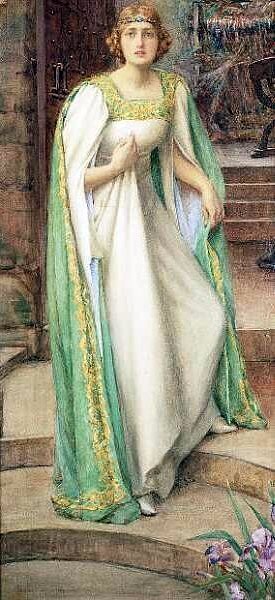
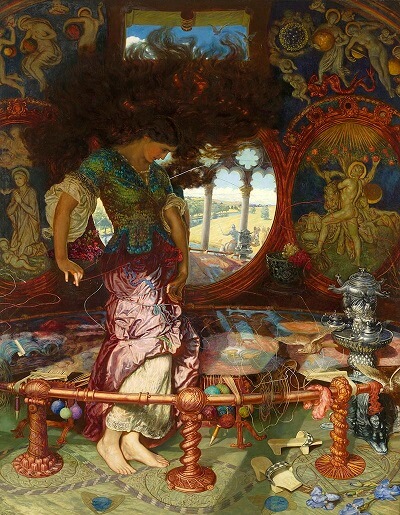
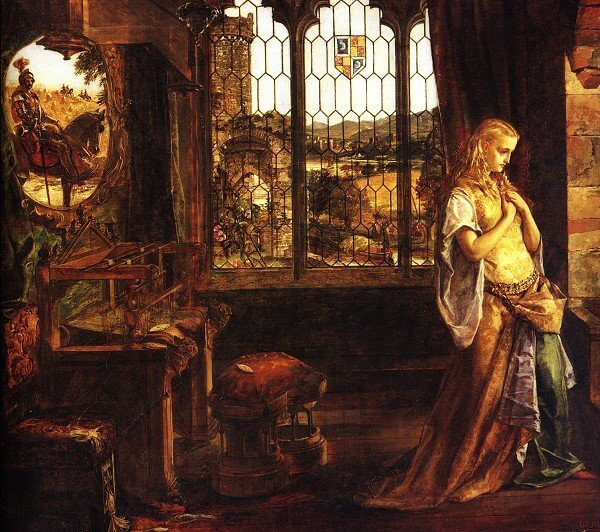
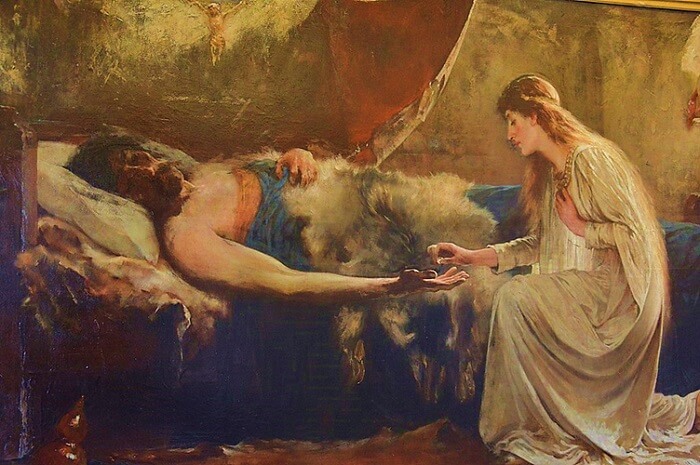

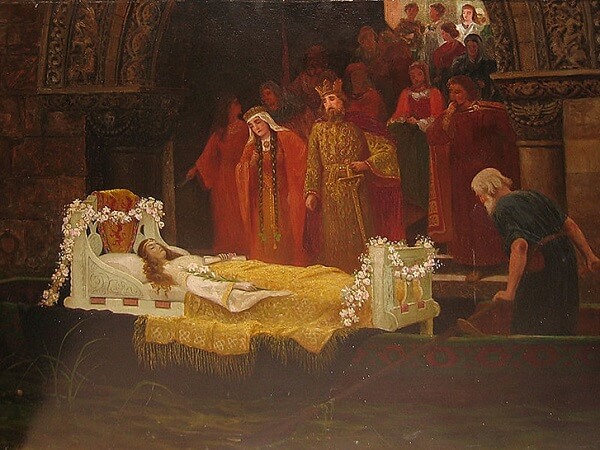
 King Arthur and His Knights
King Arthur
King Arthur and His Knights
King Arthur




